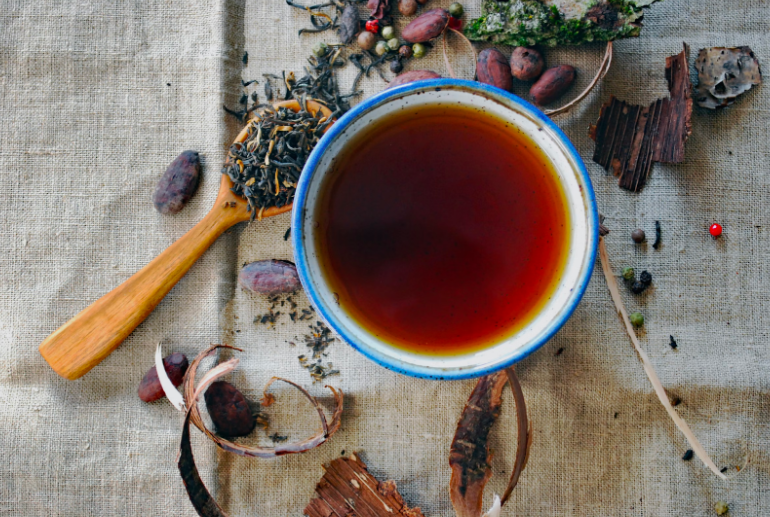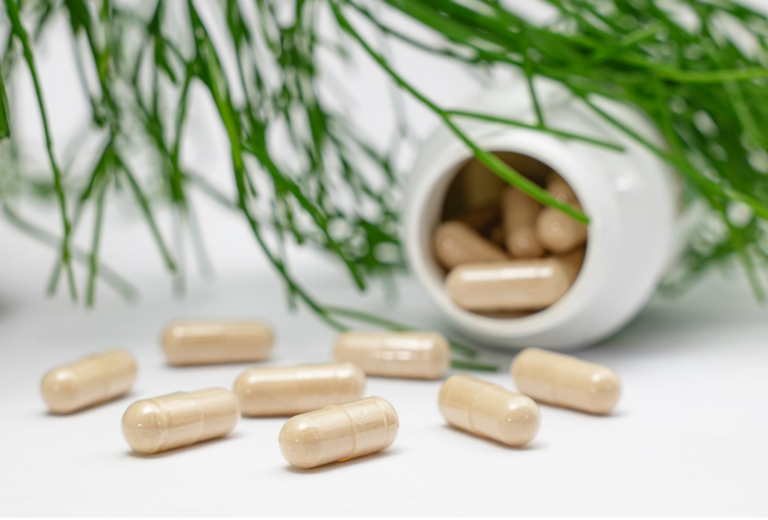When you’re trying to be your healthiest self, you often explore natural ways to feel better. For lots of folks, herbal supplements are like cheerful companions on this journey to wellness. These supplements come from different plants and have been part of traditional medicine for ages. Nowadays, scientists are digging into these plants’ secrets to understand how they can be part of keeping us well. It’s like unraveling the mysteries of herbs to see how they can lend a hand in supporting our overall well-being. In this article, we will look at how we can maximize the use of herbal supplements to provide ourselves with a holistic approach to our wellness.
Harmony, Not Cure
Before we take a deep dive into the usage of herbal supplements as safe alternatives for our wellness routines, we want to make it clear that they should not be replacements for medications. Think of herbal supplements as supportive companions rather than miracle workers. They’re not here to magically fix everything, but rather to help create a harmonious relationship with our bodies. Scientific research acts as a helpful guide, showing us how these supplements may work together with our wellness routines, contributing to an overall sense of balance. It’s not about expecting a cure-all effect, but rather understanding how these supplements, like musical notes in a symphony, can play a role in supporting our well-being. So, rather than looking for miracles, let’s embrace the idea that herbal supplements can be friendly allies, working alongside our efforts to maintain a balanced and healthy lifestyle.
Nutritional Support for a Balanced Diet
Most of us are familiar with multivitamins and how they can help us meet our daily nutritional intake. But only a few of us know that, as in the realm of dietary supplements, seaweed-derived health products are rapidly becoming noteworthy contributors to a balanced diet by augmenting nutrient intake. Renowned for their rich vitamin and mineral content, these supplements play a pivotal role in fortifying overall nutritional well-being. Specifically, spirulina is acknowledged by scientists for its antioxidative and anti-inflammatory properties, presenting potential advantages in mitigating cholesterol levels. Additionally, Chlorella, a microalgae counterpart, exhibits pharmaceutical potential through the synthesis of beneficial compounds.
Expanding our focus to seaweeds like Saccharina latissima, Undaria pinnatifida, and Porphyra purpurea, these marine entities not only enrich dietary offerings with multivitamins and minerals but also contribute to broader health goals. Despite reports of side effects, the burgeoning industry for seaweed processing underscores a compelling trajectory.
Digestive Health and Herbs
Embarking on the intriguing exploration of herbal contributions to digestive well-being, let’s shed light on the enduring qualities of ginger and peppermint. With centuries of reverence, these herbs have ingrained themselves in the narrative of digestive health. Scientific scrutiny validates their historical significance, suggesting that compounds found in ginger and peppermint may have beneficial effects on gastrointestinal function, enriching the resilience of our digestive systems.
Chamomile, characterized by its gentle and calming nature, emerges as a botanical luminary in this context. Beyond its widely acknowledged soothing properties, chamomile seems positioned to play a role in orchestrating the delicate balance of a well-functioning gut flora. Navigating the intersection of tradition and scientific inquiry, these herbs serve as pillars, not only conveying ancient wisdom but also garnering scientific acknowledgment for their potential to foster digestive harmony.
Energy Boost
Exploring the potential of herbal remedies, ginseng and maca root emerge as noteworthy contenders in the battle against fatigue and the pursuit of enhanced energy levels. Recent insights into maca’s properties, in line with the esteemed ginseng, highlight their promise in not only mitigating bodily fatigue but also preventing weight loss and bolstering the immune system. However, it’s crucial to adopt a holistic approach to these supplements. While ginseng and maca root offer support, sustained vitality is best achieved through a well-rounded lifestyle, encompassing balanced choices and adequate sleep.
Stress Management
In the arena of stress management, the dynamic synergy of adaptogenic champions such as ashwagandha, celebrated for its stress-relieving prowess in Ayurvedic traditions, combines seamlessly with the calming cadence of valerian root. Their mission isn’t to obliterate stress entirely but to stand as formidable allies, empowering us to gracefully navigate life’s challenges. Consider these herbs as seasoned advisors, subtly emphasizing the significance of maintaining equilibrium as the linchpin of resilience. Specifically, Ashwagandha, a subject of extensive research, is recognized for elevating the body’s adeptness in managing stress, transforming it from a potentially toxic force to a more tolerable aspect of life’s journey.
Another supplement that captured the attention of researchers is kratom. In a recent study, the intriguing properties of kratom have emerged, shedding light on its potential in stress management. The research uncovered that kratom effectively mitigated stress-induced pain in mice, even circumventing traditional pain relief mechanisms. This revelation carries substantial implications. While these findings are compelling, it is imperative to prioritize health and safety. Before contemplating any interventions, such as considering the potential benefits of kratom, it is strongly recommended to consult with medical professionals. If you plan to move forward in exploring the potential benefits of kratom, be sure to make informed decisions. Prioritize your health by responsibly buying kratom from reputable sources, following recommended guidelines, and seeking appropriate medical consultation.
Weight Management

In our pursuit of effective weight management routines, health supplements often emerge as go-to solutions. As we delve into the exploration of two widely used herbs in plant-derived weight loss supplements—Garcinia Cambogia and Camellia Sinensis—it becomes evident that these natural remedies hold promising potential. Garcinia Cambogia, containing hydroxycitric acid, shows promise in animal studies, but human trials yield mixed results. Green tea, rich in bioactive compounds, boosts energy consumption, though evidence for sustained weight loss in humans is inconclusive. Beyond weight loss, understanding herb-drug interactions is crucial, emphasizing caution when combining supplements with medications. In the quest for natural weight loss, recognizing both benefits and risks is crucial. Weight management involves a comprehensive approach, incorporating a balanced diet and regular exercise. Given individual variability, these supplements should be part of a broader strategy. Consulting with medical professionals before integrating them into a routine is advisable for personalized and informed decisions, acknowledging that effective weight management requires a tailored and mindful approach.
Immune System Support
Echinacea and elderberry, celebrated for their vibrant hues, have traditionally been linked to immune support, adding their unique notes to the intricate melody of our immune system. While not miraculous shields against illness, these botanical wonders play a role in supporting our body’s defense mechanisms. Enter garlic, the culinary hero, gracing the stage with a dual offering of immune and cardiovascular support wrapped in a delectable package.
In the realm of natural immune-boosting supplements, researchers have scrutinized Echinacea, Elderberry, and Garlic for their effectiveness in preventing respiratory infections. Echinacea, examined in six trials involving both adults and children, consistently demonstrated a nearly 29% reduction in symptom development, though no significant difference in infection risk was noted. Elderberry, renowned for its antioxidants, showed promise in diminishing the duration and severity of symptoms without a statistically significant impact on cold development. Garlic, a longstanding medicinal ally, yielded mixed results, notably reducing illness duration and missed workdays in two studies. While these natural remedies hold potential, the need for further comprehensive research to validate their immune-boosting properties is emphasized due to variations in formulations and limited study sizes. Always consult healthcare professionals before incorporating supplements into wellness routines.
Herbal supplements can indeed play a valuable role in supporting overall wellness when used responsibly. It’s crucial to approach them as complementary to, rather than a replacement for, a healthy lifestyle. Again, we could not stress this enough but please always consult with a healthcare professional before incorporating herbal supplements into your routine, especially if you are on medication or have specific health concerns. By combining the wisdom of traditional herbal knowledge with contemporary scientific research, you can unlock the potential benefits of these natural supplements as part of a holistic approach to well-being.
